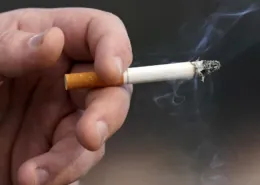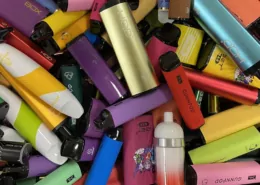Anti-vape bills pass second committees in Alabama
As the vaping epidemic continues to grow, Alabama is taking critical steps to counteract this dangerous trend. Two significant anti-vaping bills are currently making their way through the Legislature, drawing attention from all corners of the state. Each of these legislative proposals is only one vote away from becoming law. Their progression represents a pivotal moment in the fight against substance abuse among youth.
The legislative proposal, Senate Bill 316 (SB316), has been championed by Sen. Vivian Davis Figures. The primary objective of SB316 is to prohibit the purchase, use, possession, or transportation of vaping devices by individuals below 21 years of age. This bill is a clear message to the youth and sellers alike, underlining the serious health concerns associated with vaping.
In a parallel legislative move, House Bill 319, introduced by Rep. Barbara Drummond, aims to broaden the understanding of what constitutes an “Electronic Nicotine Delivery System” and “E-Liquid”. The revamped definition would include any battery-powered devices that heat substances to deliver vapor through inhalation. The intent is to keep up with evolving technology and ensure that all kinds of vaping devices fall under regulatory control.
These bills are more than just words on paper. They are a clarion call to the public, signifying the epidemic proportions this issue is taking. “These bills serve a greater purpose than just legislation – they’re an instrument of awareness. If we fail to address this issue, we stand to lose over a hundred young lives in the next decade,” warns Figures.
However, the true cost of vaping extends beyond the loss of life. It inflicts irreparable harm on the health of our youth. Children are suffering significant damage to their lungs, organs, and brains due to the addictive nature of these substances.
What sets these bills apart is their comprehensiveness in addressing vaping devices. The proposed laws will apply irrespective of the type of e-liquid being used. Thus, possessing a vape device with “vape juice” will carry the same legal ramifications as one loaded with nicotine or THC.
Virginia Guy, executive director of the Drug Education Council, drives this point home. She warns, “The science couldn’t be clearer. It’s unequivocally harmful for kids to vape anything – be it nicotine, THC, or chemicals generated by the device’s battery. The adolescent lungs simply aren’t equipped to handle such chemical onslaught.”
A remarkable aspect of these proposed laws is how they complement each other. While SB316 doesn’t outline specific punishments, the penalties become clear when viewed in conjunction with HB319. If both bills become law, first-time offenders may face a fine up to $50 or be required to serve eight hours of community service. This serves as a significant deterrent for those tempted to flout the law.
Currently, individuals under 21 years of age found possessing nicotine can face a fine of $10-50. If only SB316 passes, this existing punitive measure will remain in force. This step demonstrates that the state is serious about addressing the issue and is willing to levy financial penalties to deter underage vaping.
Figures highlights the role of these bills in raising awareness among parents. “The goal of this legislation is to grab parents’ attention, ensuring we can offer necessary help to affected children,” she asserts. Educational institutions are also at the forefront of this battle. “The school systems, the superintendents, and principals are telling me this is the primary problem within our schools,” Figures shares.
By addressing this issue, the bills aim to relieve the pressure on schools and provide an environment conducive to learning.
In the process of developing the legislation, Guy and the Drug Education Council, a Mobile-based non-profit organization, worked closely with both Drummond and Figures. The council supports the efforts to mitigate drug usage and promote a healthy environment within schools.
However, Guy acknowledges that while the laws are a crucial step, they alone can’t solve the problem. “We’re aware that legislation won’t entirely rid us of this drug issue,” Guy notes. “But it’s a vital step. We can prevent a significant portion of substance abuse if we can get these vaping devices off school campuses.”
As a testament to the bipartisan recognition of the problem, thirty-four out of thirty-five state senators, excluding one who was traveling, have signed as co-sponsors to Figures’ bill. Despite only two days remaining in the legislative session, Figures is hopeful the bills will receive a vote. Both bills have already passed their respective first houses and received favorable reports from the House and Senate judiciary committees.
- Bestselling Vapes in UK After Disposable Ban: What to Stock 2025 - August 8, 2025
- Argentina Debates Stricter Vape Laws Amid Prohibition Failures - August 8, 2025
- Nigeria Advocacy Group Urged to Hike Tobacco & Vape Tax by 100% - August 8, 2025









